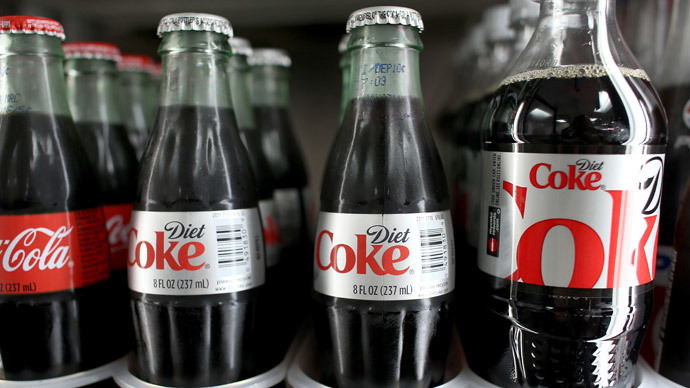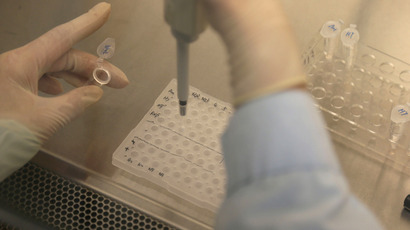Diet soda consumption associated to heart disease - study

Americans have developed a taste for diet soda, which can provide them with an extra kick without the extra calories but, according to new research, if they consume more than two drinks a day it could put them at higher risk of heart disease.
The American College of Cardiology announced in a new study that, while drinking diet soda alone may not necessarily hurt an individual’s health, someone who shops for Diet Pepsi instead of the original may be doing so to make up for other unhealthy habits.
Scientists found that women who drank two or more diet beverages each day were 30 percent more likely to experience a heart attack or similarly dangerous cardiovascular “event,” and 50 percent more likely to die. Dr. Ankur Vyas, a cardiovascular disease specialist at the University of Iowa Hospitals and Clinic, told CNBC the team examined 60,000 middle-aged women over 10 years.
“Our study suggests an association between higher diet drink consumption and mortality,” Vyas said Saturday when the results were unveiled. “It’s not an extreme risk.”
To begin the study, the subjects answered a questionnaire regarding which foods and drinks they consumed, with a special emphasis on diet soda and diet fruit flavored drinks.
Nine years later, 8.5 percent of the respondents who drank at least two diet drinks each day had some sort of heart disease, just more than the 6.8 percent who drank less than four drinks per week. Of the women who drank two or less diet drinks a month, 7.2 percent had some kind of heart disease.
Vyas, who has made headlines for the latest in a line of studies purportedly exposing the risk of diet drinks, admitted the results are not as clear as one may expect.
“We found an association, so we can’t say that diet drinks cause these problems,” he told CNBC.
Those who drank the most diet drinks, though, were determined to be more likely to have high blood pressure, to be overweight, to smoke, and be at risk of a number of potentially fatal maladies.
Dr. Vyas’ study comes two months after soda drinkers were shaken by a much more serious finding: the chemical used to give a number of popular soft drinks their brownish color may contain an additive that causes cancer.
Dr. Urvashi Rangan, executive director of Consumer Reports’ Food Safety & Sustainability Center, issued a statement in January asserting that the magazine tested dozens of cans and bottles of 4-methylimidazole (4-MeI). California had previously added 4-MeI to the state list of potentially toxic chemicals under Proposition 65 after previous studies found that long-term exposure to the chemical contributed to lung cancer in mice. Proposition 65 requires products containing potentially harmful chemicals to place warning labels on the container.
Of the 81 cans and bottles of soda tested, 29 samples exceeded the 29-microgram amount of 4-MeI allowed under the law. Pepsi One, for example, turned out to contain between 39.5 and 195.3 micrograms, while Malta Goya exceeded even that with 307.5 to 352.5 micrograms in each container. None of the containers were labeled, according to Consumer Reports.
“There’s no reason why consumers should be exposed to an avoidable and unnecessary risk that can stem from coloring food brown,” Rangan said.
Consumer Reports had encouraged the US Food and Drug Administration to examine whether the soda companies were adhering to both California and federal regulations, although observers cautioned customers to use common sense.
“It’s possible to get more than 29 micrograms of 4-MeI in one can of some of the drinks we tested,” Dr. Rangan went on. “And even if your choice of soft drink contains half that amount, many people have more than one can per day.”
Other recent reports have suggested that, among other things, diet soda can lead to weight gain, strokes, and kidney failure, among other issues. Dr. Rasa at Rush University Medical Center in Chicago, Illinois told Fox 32 News that “there is nothing good for the body.” One patient told reporters Rasa has said more than once that drinking two or more bottles of diet soda can do serious harm to vital organs.
“I had drunk a lot of soda, at least 64 ounces a day and thinking I was losing weight, etcetera by doing it,” the patient said. “And my doctor advised me that the chemicals were really bad.”














